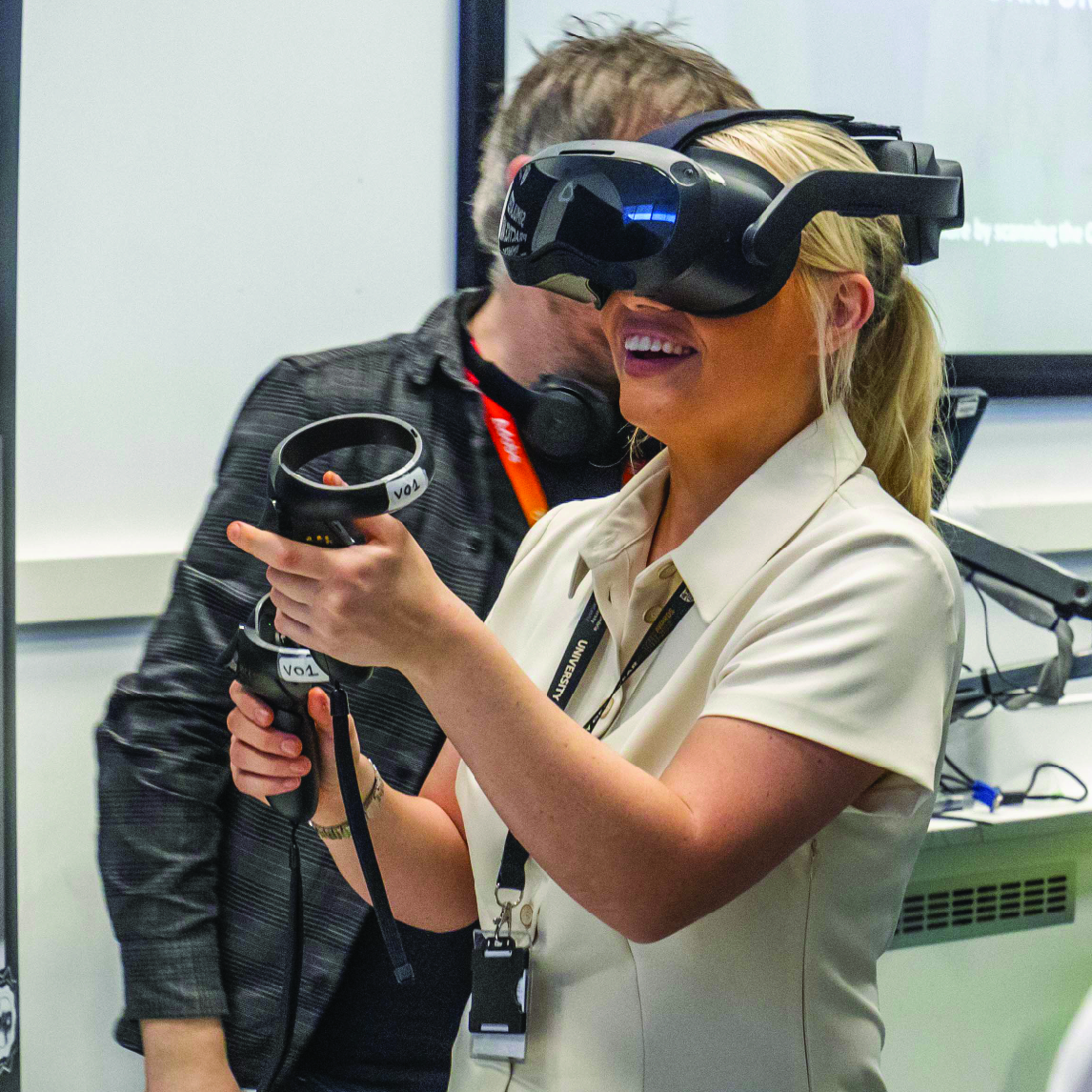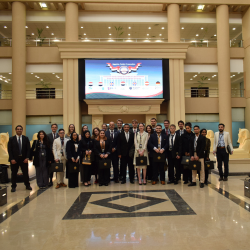-
Study
-
Quick Links
- Course Search
- Unlock Your Potential
- Still time to Apply
- Higher and Degree Apprenticeships
- Continuing Professional Development
- Still time to apply
-
Undergraduate
- Course Search
- Application Guides
- UCAS Exhibitions
- Foundation Years
- Fees and Funding
- School & College Outreach
- Information for Parents
-
Postgraduate
- Course Search
- Application Guide
- Postgraduate Research Degrees
- Flexible Learning
- Fees and Funding
- Change Direction
- Register your Interest
-
Student Life
- Students' Union
- The Hub - Student Blog
- Accommodation
- Northumbria Sport
- Support for Students
-
Experience Northumbria
- Open Days & Events
- Virtual Tours
- Campus Tours
- Life in Newcastle
-
-
International
International
Northumbria’s global footprint touches every continent across the world, through our global partnerships across 17 institutions in 10 countries, to our 277,000 strong alumni community and 150 recruitment partners – we prepare our students for the challenges of tomorrow. Discover more about how to join Northumbria’s global family or our partnerships.
View our Global Footprint-
Quick Links
- Course Search
- Undergraduate Study
- Postgraduate Study
- Information for Parents
- London Campus
- Northumbria Pathway
- Sign up for Information
-
International Students
- Information for Students
- International Events
- Application Guide
- Entry Requirements and Education Country Agents
- Global Offices
- English Requirements
- English Language Centre
- International student support
-
International Fees and Funding
- International Undergraduate Fees
- International Undergraduate Funding
- International Masters Fees
- International Masters Funding
- International Postgraduate Research Fees
- International Postgraduate Research Funding
-
International Partners
- Agent and Representative Network
- Global Partnerships
- Global Community
-
International Mobility
- Information for Northumbria Students
- Information for Incoming Exchange Students
-
-
Business
Business
The world is changing faster than ever before. The future is there to be won by organisations who find ways to turn today's possibilities into tomorrows competitive edge. In a connected world, collaboration can be the key to success.
More on our Business Services -
Research
Research
Northumbria is a research-rich, business-focused, professional university with a global reputation for academic quality. We conduct ground-breaking research that is responsive to the science & technology, health & well being, economic and social and arts & cultural needs for the communities
Discover more about our Research -
About Us
-
About Northumbria
- Our Strategy
- Our Staff
- Place and Partnerships
- Leadership & Governance
- Academic Departments
- University Services
- History of Northumbria
- Contact us
- Online Shop
-
-
Alumni
Alumni
Northumbria University is renowned for the calibre of its business-ready graduates. Our alumni network has over 246,000 graduates based in 178 countries worldwide in a range of sectors, our alumni are making a real impact on the world.
Our Alumni - Work For Us
What will I learn on this module?
In this module you will develop an understanding of the fundamental principles underpinning the subject of chemistry. Through discussion of theory and engaging in practical experimentation you will improve your knowledge of the five core areas of chemistry:
1. Organic chemistry: where you will study atomic structure, bonding and reactivity of organic compounds.
2. Analytical chemistry: where you will study reactions to detect specific functional groups, alongside instrumental techniques such as mass spectrometry.
3. Molecular modeling: where you will study how to represent chemical structures using a computer, in addition to developing a better understanding of molecular geometry and isomerism
4. Inorganic chemistry: where you will study the structure and properties of metals and their complexes.
5. Physical chemistry: where you will study factors affecting the rate and progress of chemical reactions.
You will also spend time developing chemistry-focussed laboratory skills including considering the implications of risk management and safety, which is a critical skill for all practising chemists.
How will I learn on this module?
You will be taught through a combination of lectures, seminars, practical classes and tutor-guided independent learning activities. The theory of the subject will be delivered through lectures on a range of introductory topics in chemistry from lecturers who are experts in their field. You will develop your technical skills through participation in a series of laboratory classes, each supported by a seminar which will outline the relevant theory. You will be provided with a series of problems to work through in your own time designed to test your own comprehension of the material, and you will also be provided with background reading by each lecturer to allow you to develop your understanding at your own pace.
How will I be supported academically on this module?
You will be provided with access to lecture notes and supplementary materials such as useful websites and videos through Blackboard Ultra. Here you will also be kept up-to-date with the organisation of lectures, seminars, practical sessions and the tutor-guided activities. This information will complement the electronic timetable which will be issued to you centrally via University timetabling. You will also have access to a student forum on Blackboard Ultra where you can ask questions and find answers from your peers and your lecturers. At the end of each taught session lecturers will provide you with an opportunity to ask questions, however staff can be contacted outside of these sessions by email and you can arrange time to discuss issues at a time convenient to you both.
What will I be expected to read on this module?
All modules at Northumbria include a range of reading materials that students are expected to engage with. Online reading lists (provided after enrolment) give you access to your reading material for your modules. The Library works in partnership with your module tutors to ensure you have access to the material that you need.
What will I be expected to achieve?
Knowledge & Understanding:
1. You will develop your knowledge of the fundamental theoretical principles of chemistry.
2. You will participate in practical laboratory practicals to further develop your understanding of organic and analytical chemistry.
Intellectual / Professional skills & abilities:
3. You will develop your transferable key skills by working as part of a team to solve a problem in the laboratory.
4. You will operate in a safe and effective manner in the laboratory.
Personal Values Attributes (Global / Cultural awareness, Ethics, Curiosity) (PVA):
5. You will gain a greater insight into the need for risk assessment in chemistry for personal and public safety.
How will I be assessed?
You will participate in a group laboratory exercise to determine the cause of a simulated environmental disaster (MLOs KU2, KU3 and IPSA3 and IPSA4).
Through attendance at the session, your findings, and your answers to a series of MCQs via the eLP will provide you with a summative mark (MLOs KU1, KU2, IPSA 3 and PVA5).
In addition, formative assessment will be provided during the laboratory sessions, on an individual or group basis (supporting MLOs KU1, KU2, IPSA 3, IPSA 4 and PVA5).
Pre-requisite(s)
N/A
Co-requisite(s)
AP0306, AP0307, AP0308 and AP0309
Module abstract
A degree in chemistry enables you to work in a wide variety of sectors after graduation, from pharmaceutical to industrial and from environmental to education. This module is designed to introduce chemistry as a degree programme, and to help you to develop the skills needed to be successful on the BSc (Hons) Chemistry and Master of Chemistry programmes here at Northumbria University. Through a combination of lectures, interactive seminars and practical classes you will learn about the core areas of chemistry: organic, analytical, molecular modeling, inorganic and physical. To enable the success of students from a wide variety of backgrounds, each lecture is supplemented with a series of directed self-learning topics to allow you to learn at your own pace and ensure understanding. The final assessment for this module requires you to work as part of a team to find the culprit of a simulated environmental disaster, developing your transferable key skills as you do.
Course info
UCAS Code Y002
Credits 20
Level of Study Undergraduate
Mode of Study 1 year Full Time followed by a further 3 years Full Time or 4 years with a placement (sandwich)/study abroad
Department Applied Sciences
Location City Campus, Northumbria University
City Newcastle
Start September 2025 or September 2026
All information is accurate at the time of sharing.
Full time Courses are primarily delivered via on-campus face to face learning but could include elements of online learning. Most courses run as planned and as promoted on our website and via our marketing materials, but if there are any substantial changes (as determined by the Competition and Markets Authority) to a course or there is the potential that course may be withdrawn, we will notify all affected applicants as soon as possible with advice and guidance regarding their options. It is also important to be aware that optional modules listed on course pages may be subject to change depending on uptake numbers each year.
Contact time is subject to increase or decrease in line with possible restrictions imposed by the government or the University in the interest of maintaining the health and safety and wellbeing of students, staff, and visitors if this is deemed necessary in future.
Useful Links
Find out about our distinctive approach at
www.northumbria.ac.uk/exp
Admissions Terms and Conditions
northumbria.ac.uk/terms
Fees and Funding
northumbria.ac.uk/fees
Admissions Policy
northumbria.ac.uk/adpolicy
Admissions Complaints Policy
northumbria.ac.uk/complaints









